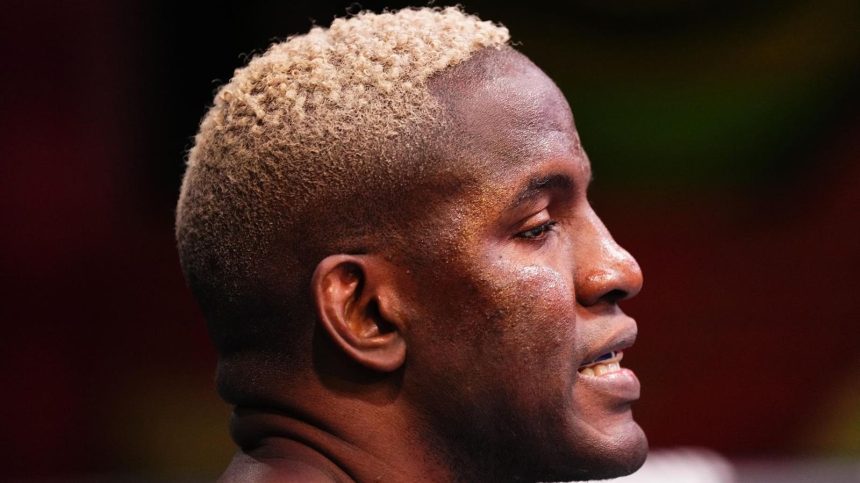Robelis Despaigne, a former Olympic Taekwondo athlete and briefly a UFC fighter, has potentially found his ideal competitive environment in Karate Combat. At Karate Combat 51 in Miami, Despaigne delivered a spectacular knockout victory, dispatching his opponent, Dominik Jędrzejczyk, in a mere three seconds, setting a new record for the fastest knockout in the promotion’s history. This decisive win marks a significant turning point for Despaigne, whose recent MMA career had been hampered by grappling deficiencies.
Despaigne’s transition to MMA initially appeared promising, mirroring his early success in Taekwondo. He started his MMA career with a string of four first-round knockout victories, which attracted the attention of the UFC. His UFC debut further solidified this positive trajectory, as he knocked out Josh Parisian in just 18 seconds. However, this initial burst of success was short-lived. Despaigne’s subsequent fights exposed a critical weakness in his game: his vulnerability to takedowns and his struggle to regain his feet once on the ground. Against opponents like Waldo Cortes-Acosta and Austen Lane, who capitalized on this weakness, Despaigne suffered consecutive unanimous decision losses, ultimately leading to his release from the UFC.
The UFC’s decision to part ways with Despaigne highlighted the limitations of his MMA skillset, particularly his grappling deficits. While he has reportedly signed with the Global Fight League, a new MMA organization slated to launch in 2025, the demanding and multifaceted nature of MMA presents a steep learning curve, especially at 36 years old. Catching up to elite-level grapplers requires significant time and dedicated training, which raises questions about Despaigne’s long-term prospects in MMA. His advanced age and the time required to develop high-level grappling skills suggest that substantial improvement in this area may be unrealistic. This effectively creates a ceiling on his potential in MMA, prompting a search for alternative combat sports avenues where his striking prowess can truly flourish.
Karate Combat, with its stand-up striking focus, provides a more suitable platform for Despaigne’s skillset. His Taekwondo background translates seamlessly into the striking exchanges of Karate Combat, allowing him to leverage his powerful kicks and punches without the constant threat of takedowns. The quick and decisive knockout victory against Jędrzejczyk demonstrates the effectiveness of his striking in this environment. This win not only validates his decision to pursue Karate Combat but also suggests that he may have finally found a combat sports organization where he can consistently showcase his strengths and achieve sustained success.
Beyond Karate Combat, Despaigne’s striking power could also open doors in the world of professional boxing. While his kicking skills are a defining feature of his fighting style, all six of his professional combat sports knockouts have been achieved with punches, demonstrating his knockout power with his hands. This punching power, combined with his experience in managing distance and timing from Taekwondo, provides a solid foundation for a potential boxing career. Transitioning to boxing would eliminate the grappling element altogether, allowing him to focus solely on honing his striking techniques and developing a boxing-specific strategy.
The success of a potential boxing career for Despaigne would hinge on several factors, including effective marketing and strategic matchmaking. Highlighting his explosive knockout power and his unique background as an Olympic Taekwondo athlete and former UFC fighter could generate significant interest and create a compelling narrative. Carefully selected opponents in the early stages of his boxing career would be crucial to build momentum and confidence. While becoming a world champion in boxing might be a long shot, achieving a level of success where he can secure lucrative paydays is certainly within the realm of possibility. Despaigne’s story, his striking ability, and the right promotional push could create a marketable commodity in the boxing world.
The impressive knockout victory at Karate Combat 51 served as a timely reminder of Despaigne’s striking prowess. On a night with limited major combat sports events, Despaigne’s performance stole the show, solidifying his position as a fighter to watch. This victory not only reignited his career but also opened up new possibilities in both Karate Combat and potentially professional boxing. It underscores the importance of finding the right platform for one’s skills and highlights the potential for athletes to reinvent themselves and find success even after setbacks in other disciplines. The future for Robelis Despaigne, once uncertain, now holds the promise of exciting new chapters in the world of combat sports.



